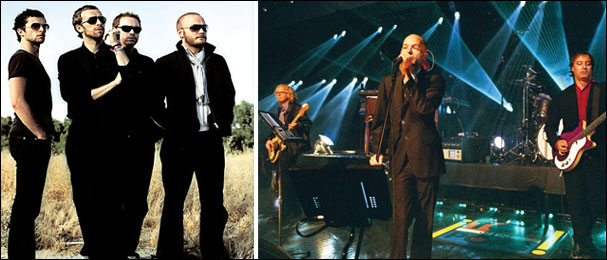|
|
| |
Music
to help you get through the credit crunch
Laura
Barton
The Guardian |
| |
 |
| |
|
Economic recession rivals
suburbia and rain as one of the major fomenters of great music -
so while your house price slides and your food bills climb, console
yourself with the thought that at least there are going to be some
really great records made during this credit crunch. It's just you
won't be able to afford to buy them.
But what kind of music does a recession spawn? Music rating website
TheFilter.com would have us believe that the sorry state of the
economy has sent us all off in search of misery; a study recently
conducted by the site found that "more of us are choosing downbeat
and dreary tunes as our favourites, rather than happy, feelgood
numbers." They cite the Smiths' 'Heaven Knows I'm Miserable
Now', Coldplay's 'Trouble', REM's 'Everybody Hurts' and Radiohead's
'How to Disappear Completely' as examples.
Certainly, economic downturn has borne many dirges - Del Amitri's
'Nothing Ever Happens', for example, was a surprise hit shortly
after the housing slump of 1990. But when we think of "recession
music" I suspect we are largely thinking of music created during
a period that covers the winter of discontent in 1978/9 and the
miners' strike of the early 1980s, which did indeed bring us some
magnificently angry and miserable music, but also the New Romantics
and, shortly afterwards, acid house.
In truth, times of financial glumness often incite flamboyantly
escapist music, as well as misery; while the bestselling song during
America's Great Depression was Bing Crosby's version of 'Brother
Can You Spare a Dime?' and the era also inspired many of Woody Guthrie's
dust-bowl ballads, the same period brought us 'We're In the Money'
and 'Happy Days Are Here Again', not to mention the upbeat tunes
of big band and swing - think of it as the acid house of its day.
|
|
|

